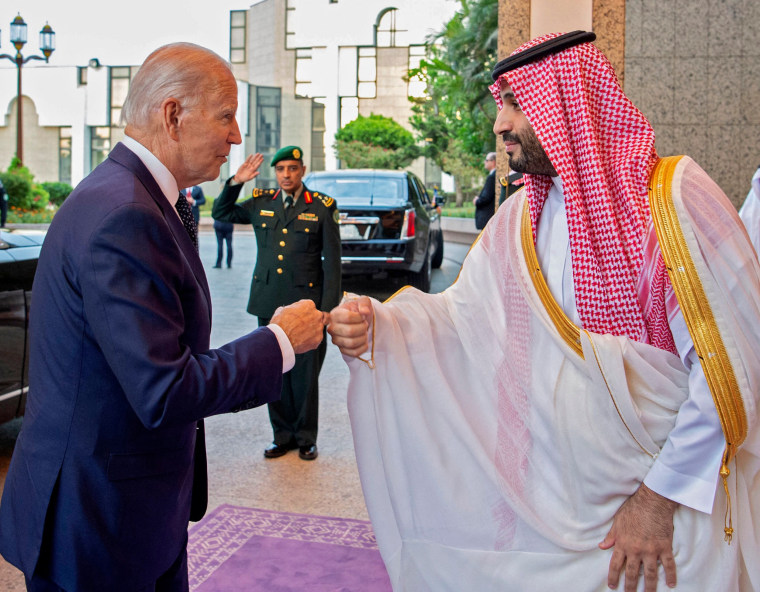Saudi Arabia has suggested the United States asked it to wait a month before cutting oil production, defending a move heavily criticized by the White House as helping Russia’s war in Ukraine.
Such a delay in the OPEC+ supply reduction could have staved off price rises at American pumps until after the midterm elections, though the Saudi foreign ministry did not specifically mention the midterms in its lengthy and terse statement late Wednesday.
Rising fuel costs are a key driver of inflation, which shows no sign of slowing down and hit 8.2% in September to remain top of mind for many Americans as Democrats hope to hold on to their slim majority in Congress.
The White House pushed back against any suggestion that it made a politically motivated request, with National Security Council spokesperson Adrienne Watson saying in a statement early Friday that it was “categorically false to connect this to U.S. elections.”
“It’s always been about the impact on the global economy and impact on families at home and around the world, especially as Putin wages his war against Ukraine,” she added.
It’s the latest exchange to punctuate a delicate relationship between Washington and Riyadh, with President Joe Biden initially calling the kingdom a “pariah” before traveling to the kingdom this summer to fist-bump Crown Prince Mohammed Bin Salman in a much-criticized overture to increase global oil production.
As the de facto head of OPEC+, Saudi Arabia rejected that appeal, with the alliance instead announcing earlier this week it would be cutting global supply by 2 million barrels. That drew heavy criticism from Biden and other Democrats, who saw it as siding with the Kremlin. Russia is an OPEC+ member and as an an oil-exporting giant would benefit from rising prices.
Some Democrats suggested the U.S. reevaluate its entire relationship with the kingdom, with Biden vowing “consequences” for a decision many viewed as a boon to President Vladimir Putin.
On Thursday, Saudi Arabia hit back, releasing a long, pointed statement in which it rejected suggestions the cut was “politically motivated,” saying the decision was reached by consensus and made to “protect the global economy from oil-market volatility.”
It said “attempts to distort the facts” were “unfortunate.”
The kingdom had “clarified through its continuous…
Click Here to Read the Full Original Article at NBC News World News…

